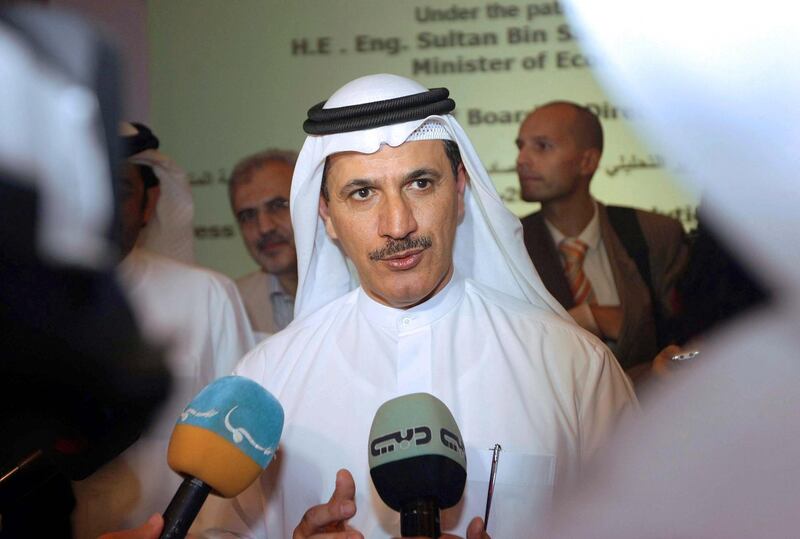The government taskforce set up to develop Dubai’s Islamic economy aims to grow the sector’s contribution to the emirate’s gross domestic product to 10 per cent by 2021 from 8.3 per cent today.
The Islamic economy, which includes Sharia-compliant banking, retail and other products and services, could be boosted through efficient and widespread use of modern technology, the Dubai Islamic Economy Development Centre said in a statement on Saturday.
“The UAE is a catalyst for innovative initiatives and policies that present effective solutions to global economic challenges, while specifically enhancing the Islamic economy,” said Sultan Al Mansouri, UAE Minister of Economy and chairman of DIEDC.
“As a comprehensive economic system, a knowledge-based economy also paves the path to the economy of the future.”
DIEDC in 2017 launched a new Islamic economy strategy for the five-year period to 2021. The strategy aims to identify new metrics to monitor the growth of three key sectors – Islamic finance, halal products, and Islamic lifestyle (including culture, art, fashion and family tourism) – and measure their contribution to the national GDP.
In 2018, the overall Islamic economy accounted for 8.3 per cent of Dubai’s GDP, while the halal industry made up 5.8 per cent of total Dubai trade volumes, showed official figures from Dubai Statistics Centre.
Demand for Sharia-compliant products and services is rising globally to cater to the world's Muslim population, with the Islamic finance sector growing especially quickly. Sharia-compliant financial assets were estimated to make up 1 per cent of all financial assets worldwide in 2017, according to Thomson Reuters. The industry grew by 6 per cent to reach $2.4 trillion by the end of last year, according to this year's Global Islamic Finance Report by Edbiz Consulting based in the UK.
The UAE is among the countries leading the way, and Dubai this year set a world record for the highest value of sukuk (Islamic bond) listings – Dh217.33 billion ($60bn) – in one year, according to the Department of Economic Development's Dubai Economic Report 2018.
_______________
Read more:
[ Islamic banking key to financing China’s Belt and Road ]
[ Dubai Islamic Bank Q2 net profit rises 14% on core businesses income growth ]
[ DIFC Courts in bid to support firms trading on China’s Belt and Road ]
_______________
The scope of the DIEDC will be further broadened in 2019. “A specific goal would be to [increase Islamic economy’s contribution to GDP] through efficient use of modern technology,” said DIEDC director general Essa Kazim.
In the year ahead, the centre aims to develop partnerships with local and international organisations, with the goal of building a regulatory framework and ecosystem to shape the growth of the Islamic economy. Increasing knowledge, industry standards and use of digital technologies in Sharia-compliant industries are key to the DIEDC’s strategy for 2019.
It also aims to supply young talent with the required skill set to boost growth across key sectors of the Islamic economy and contribute to the growth of the wider knowledge economy.






